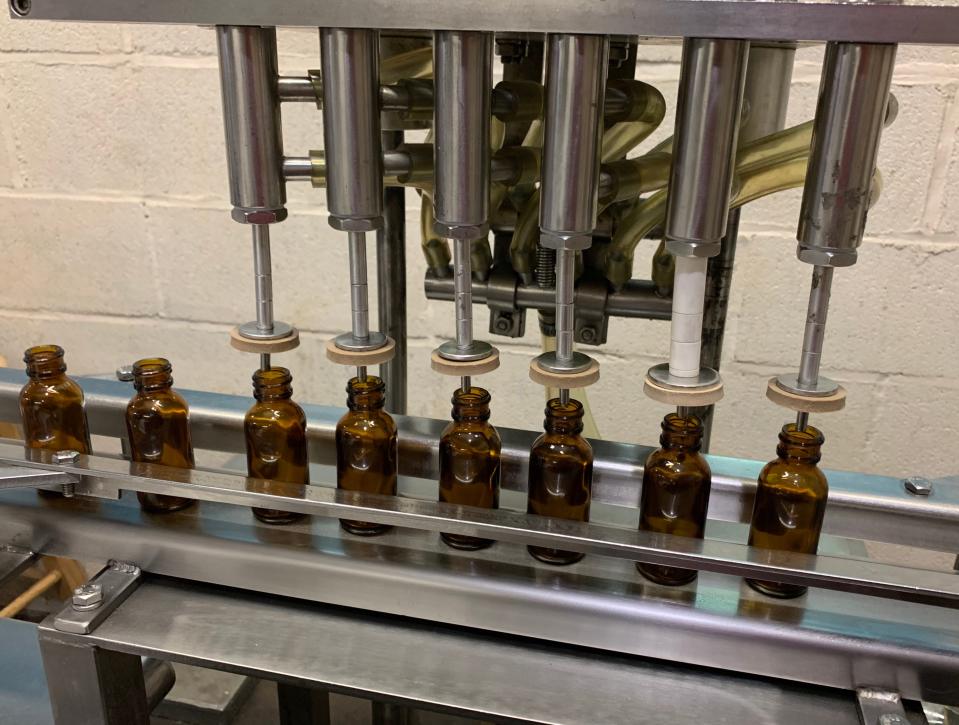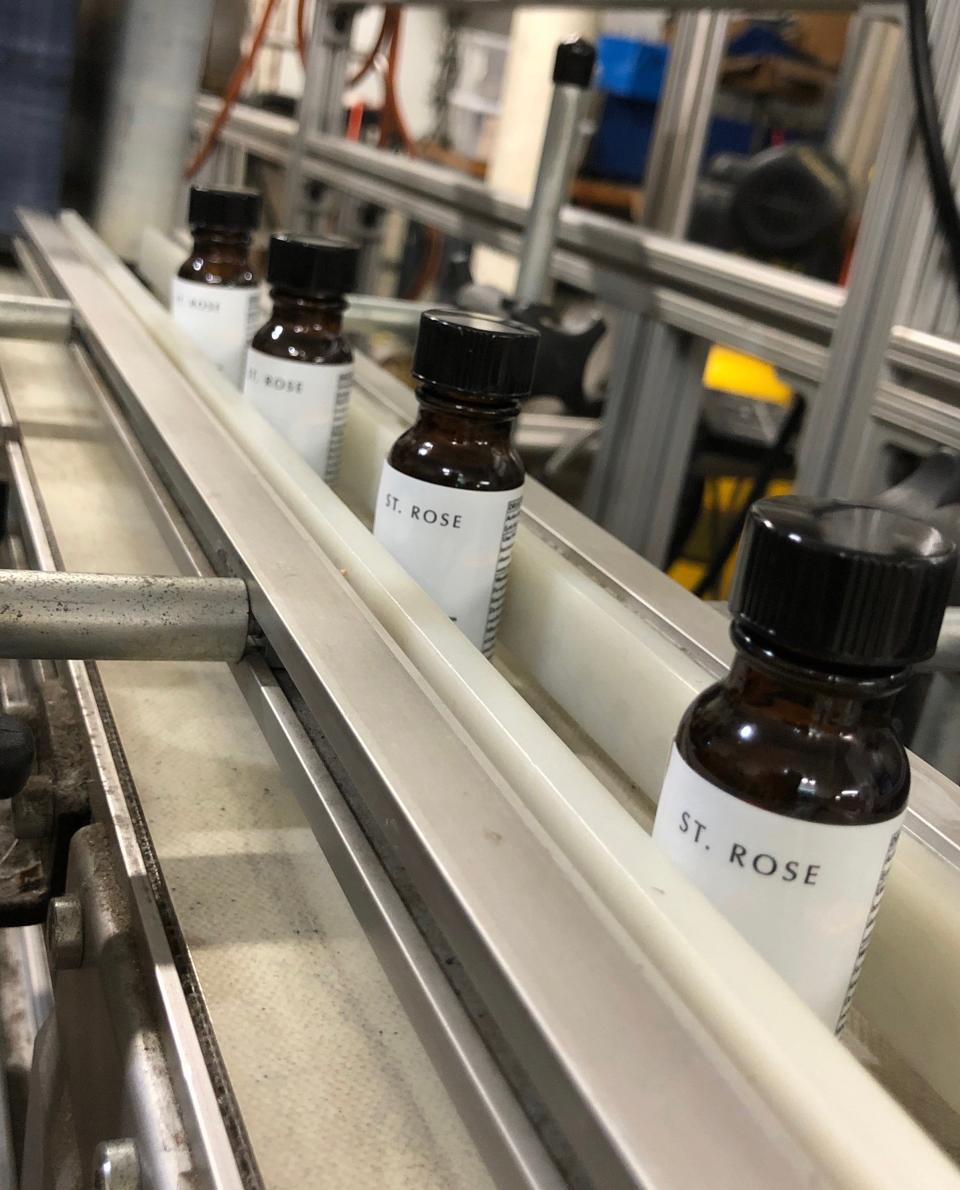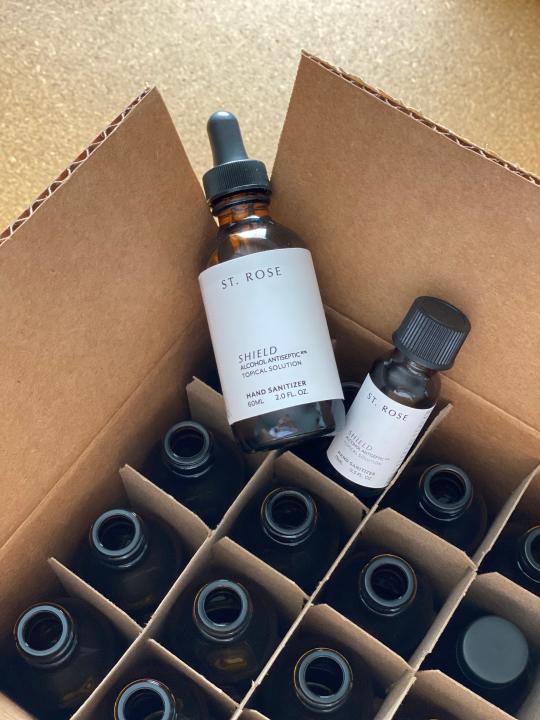How COVID-19 Has Changed the Fragrance Industry — at Least for Now
Here's the lowdown on how to subscribe to Allure's print edition for more beauty routines, recommendations, and features.
Perfume is one of the only beauty products that doesn't require touch — whether you're applying or appreciating it. Perhaps it's for this reason, amidst reports of soaring at-home hair-color sales, drugstore eye makeup, and at-home nail-care solutions, the world of scent has largely flown under the radar. But the reality is that perfume stores have closed, harvests of key ingredients are going unpicked, alcohol (an in-demand disinfectant and often a key perfume ingredient) is becoming harder to obtain, and customers are demanding different products.
Interestingly, almost every brand we spoke with reported that people are still buying perfume — and a lot of it. "We have seen our online sales increase between 150 and 200 percent, depending on the market," says Michelle Feeney, founder of Floral Street perfumes.
Many brands say that they're still selling plenty of traditional perfume, but once-ancillary home fragrance offerings, like candles and diffusers, are now taking center stage. "While everyone is staying home, people are stocking up and ordering candles online. Candles provide a sense of comfort and calm during this challenging time," says Julien Provost, global creative director for Cire Trudon.

Diptyque U.S. president Julien Gommichon suggests that customers are using scent to create variety in their surroundings when they can't leave the house. "Each space becomes even more important when you're spending more time at home, from the living room to the bedroom or bathroom," he says.
But it's not all sunny: Perfume founders like Julian Bedel of Fueguia 1833 admit that the online uptick hasn't made up for the loss in brick-and-mortar sales, and worse, ingredient scarcity may threaten future stock. "Bergamot, neroli, and iris are all March and April crops; we have [had] many communities not able to harvest crops due to transport disruptions or quarantine restrictions," Bedel says.
Belinda Smith, founder of natural perfume line St. Rose, says she may have to use higher percentages of synthetic ingredients in the future (right now nothing in the line is more than five percent synthetic), or else offer limited-edition batches to deal with, for example, her own bergamot shortage (something she usually sources from a fifth-generation family-owned citrus farm in Calabria, Italy).

Smith has kept up with continued demand for perfume during this time by boxing up all shipments in her own home, since the shipping solutions she once relied on are no longer available. She's not sure if she'll be able to continue to obtain the artisanal French glass she's always bottled her perfume in. "Typically, France shuts down in August for their summer holiday, but if they do that again after quarantine, it's going to make our bottles and components a lot scarcer," Smith says.
Of course, that's assuming perfume brands will have anything to bottle in the first place. "The base of all fragrance is alcohol, and there is currently a shortage due to the increase in sanitizer production, which is obviously an absolute priority at this time," Feeney says. Some brands, like Sol de Janeiro, whose most recent perfume, Sol de Janeiro Sol Cheirosa '62, launched the week that stay-at-home orders were issued across the country, have responded by leveraging its relationships with alcohol suppliers to launch its own hand sanitizers. Marc Chaya, CEO and co-creator of Maison Francis Kurkdjian, says the brand may focus more on personal-care items to meet shifting demands.
The future of perfume shopping when non-essential businesses are allowed to open their doors again is up in the air. But with countries like New Zealand and Australia starting to open back up, global brands and retailers alike are quickly trying to come up with a plan. (Editor's note: Allure reached out to Coty, who owns the licenses for Gucci, Tiffany and Co., Lacoste, Marc Jacobs, and more, and Coty declined to comment on COVID's effect on its perfume brands.)

For their part, many brands are holding summer launches for fall. Gommichon says Diptyque's stores plan to incorporate masks, gloves, sanitizers, and frictionless payment into all of their stores, while exploring avenues like phone orders, video consultations, and innovative sampling efforts. Atelier Cologne's president Gerard Camme says its brand is currently offering Zoom and FaceTime consultations and envisions making curbside pickup available to customers when stores are reopened.
Until that day, perfume boutiques like Aedes de Venustas, a New York City staple nestled next to Bar Belly on Orchard Street and Canal, will lie empty. Or mostly empty. "I still turn on the chandelier every day, just for myself," co-owner Robert Gerstner says. "I turn on the music every day, just for myself. I close the door, and it's like time stood still. It's such a feel-good place."
And every day, the USPS delivery person comes by, laden with boxes of perfumes to bring to Aedes' customers. "He told me, 'The one joy I have every day is picking up the boxes from you because it makes the truck smell so good," Gerstner says. "It's about these little things."
Read more on how the coronavirus pandemic is affecting the beauty industry:
Kim Kardashian and Kris Jenner on What It's Like Launching a Fragrance During a Pandemic
Many Dermatologists Pivot to Telemedicine Amid Coronavirus Outbreak
43 Beauty Brands Giving Back in Support of Coronavirus Relief
Now, watch the power of scent:
You can follow Allure on Instagram and Twitter, or subscribe to our newsletter to stay up to date on all things beauty.
Originally Appeared on Allure

